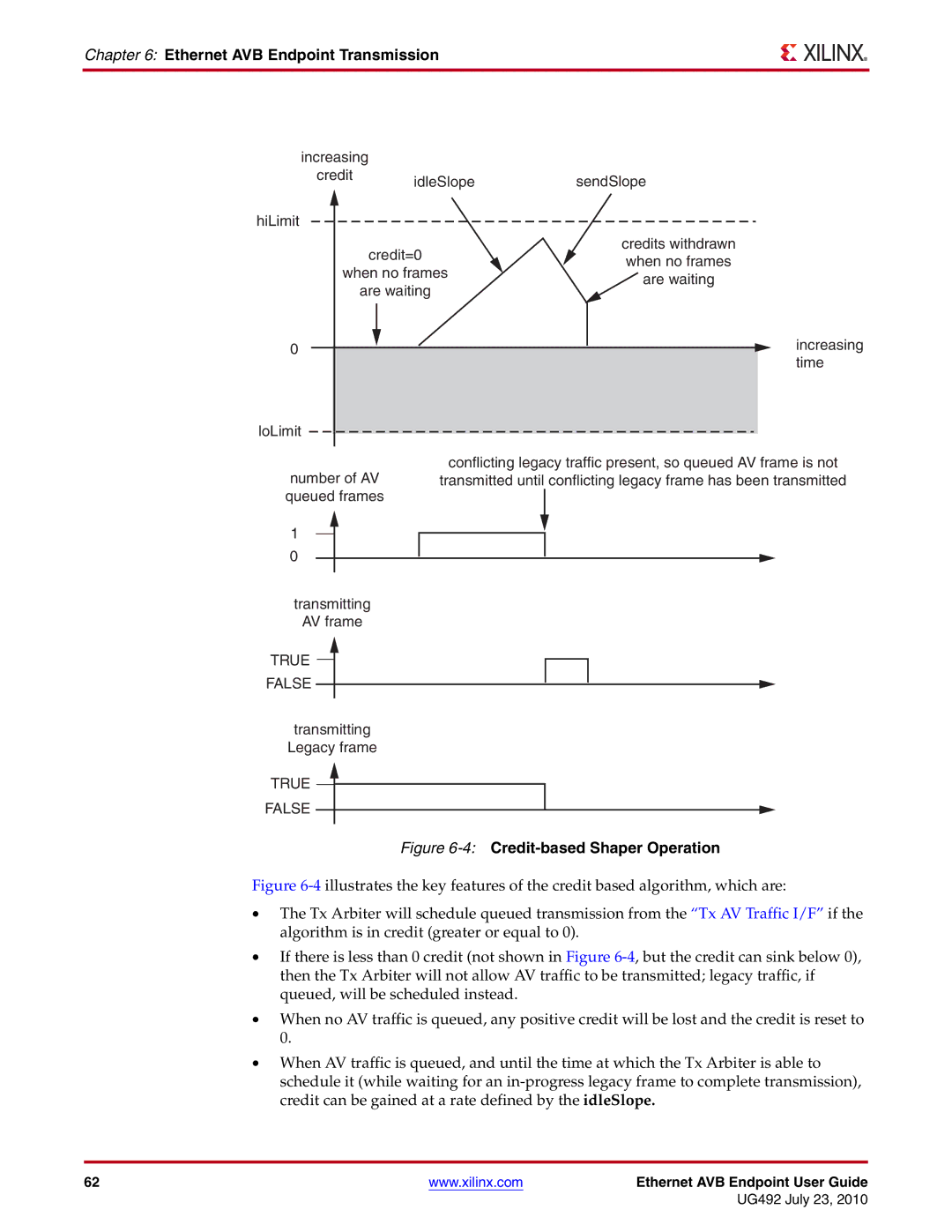
Chapter 6: Ethernet AVB Endpoint Transmission
increasing |
|
| |||
| credit |
| idleSlope | sendSlope | |
|
|
| |||
hiLimit |
|
|
|
| |
|
| credit=0 | credits withdrawn | ||
|
| when no frames | |||
| when no frames | ||||
| are waiting | ||||
|
| are waiting | |||
|
|
|
| ||
0 |
|
|
|
| increasing |
|
|
|
| ||
|
|
|
| ||
|
|
|
| ||
|
|
|
|
| time |
loLimit
conflicting legacy traffic present, so queued AV frame is not
number of AV transmitted until conflicting legacy frame has been transmitted queued frames
1
0
transmitting
AV frame
TRUE
FALSE
transmitting
Legacy frame
TRUE
FALSE
Figure 6-4: Credit-based Shaper Operation
Figure 6-4 illustrates the key features of the credit based algorithm, which are:
•The Tx Arbiter will schedule queued transmission from the “Tx AV Traffic I/F” if the algorithm is in credit (greater or equal to 0).
•If there is less than 0 credit (not shown in Figure 6-4, but the credit can sink below 0), then the Tx Arbiter will not allow AV traffic to be transmitted; legacy traffic, if queued, will be scheduled instead.
•When no AV traffic is queued, any positive credit will be lost and the credit is reset to 0.
•When AV traffic is queued, and until the time at which the Tx Arbiter is able to schedule it (while waiting for an in-progress legacy frame to complete transmission), credit can be gained at a rate defined by the idleSlope.
62 | www.xilinx.com | Ethernet AVB Endpoint User Guide |
|
| UG492 July 23, 2010 |
